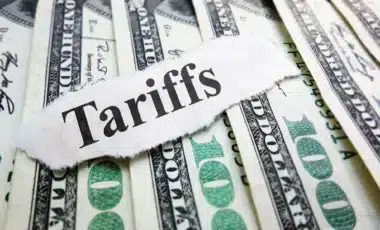In a move aimed at bolstering US manufacturing, President Donald Trump’s decision to double tariffs on steel and aluminum is already beginning to have far-reaching consequences. While the administration has promised lower grocery costs, these new tariffs could push up food prices for millions of Americans, particularly those reliant on canned goods.
With the tariffs impacting both steel and aluminum imports, experts warn that basic staples like canned tuna, beans, and Spam could see price hikes in a matter of months. For millions of low-income families across the US, canned foods are a mainstay due to their affordability, long shelf life, and ease of storage.
This is especially true for people like 20-year-old Cale Johnson from Omaha, Nebraska, who depends on non-perishable items to make ends meet while working part-time jobs and attending university. “There’s a feeling of panic,” Johnson said, adding that many are now stockpiling food in anticipation of rising costs.
Tariffs Impacting Can Manufacturers and Food Producers
The core of the issue lies in the steel and aluminum tariffs, which are expected to increase the cost of tin mill steel. This steel is vital for the production of cans, which hold essential food products. According to the Can Manufacturers Institute (CMI), tariffs on steel could result in price increases of up to 15% for canned goods.
This would have a direct impact on companies such as Del Monte, Goya Foods, and Hormel Foods, which already face challenges due to the reduced number of domestic steel producers. As nearly 80% of tin mill steel is imported, the new tariffs are putting pressure on both can manufacturers and food suppliers, creating a supply chain bottleneck that could escalate costs for consumers.
Despite calls for relief from business leaders in the food industry, including requests for exemptions on steel imports from allies like Canada, it is unclear if the government will grant any reprieve.
The situation is compounded by the Trump administration’s other economic policies, which are creating a perfect storm for low-income households that rely heavily on programs such as the Supplemental Nutrition Assistance Program (SNAP).
Rising Food Insecurity Amid Policy Shifts
Alongside these tariff increases, the SNAP program, which is the US’s most effective anti-hunger tool, faces deep cuts under the current Republican House budget.
These changes will particularly affect families already struggling to access affordable food. Experts, such as Gina Plata-Nino from the Food Research & Action Center (FRAC), warn that reduced SNAP benefits and rising food prices could lead to a substantial increase in food insecurity, especially for children and vulnerable populations.
Food banks and hunger relief organizations, which rely heavily on donations of non-perishable items, may also find it increasingly difficult to source affordable supplies.
“Increased costs from tariffs could also potentially affect non-perishable food donations since the cost of those items will be higher and folks may be less likely to donate them,” explained Michelle Orge of Second Harvest Foodbank of Southern Wisconsin.
This domino effect could leave many Americans, including the elderly, children, and working families, struggling to put food on the table in the coming months.









